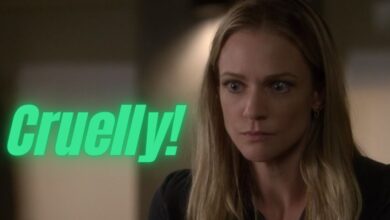‘Criminal Minds’ Fans ‘in Denial’ After Beloved Character’s Shocking Death
Fans of the hit show Criminal Mindsare reeling after seeing the newest episode that aired on May 15, in which a beloved longtime supporting character died.
In the new episode titled “The Zookeeper,” William “Will” LaMontagne, Jr., played by Josh Stewart, who is the husband of JJ, played by A.J. Cook, dies after suffering what he initially thinks is a migraine.
Some longtime fans of the show guessed that Will might reach a tragic end this season after Stewart appeared to hint at it in a past social media post.
One fan who has followed Criminal Minds, and Will and JJ’s relationship in particular, for a long time, wrote just before the episode aired, “15 years of watching criminal minds, 12 years ago I created the shipname for Willifer, I am still in denial that we will lose them this season. 😭😭😭 Thank you AJ and Josh for giving us a love story that set standards high.”
Another fan questioned the move, writing, “We met will in s2, him and jj immediately got together, and now it’s s18 and he’s dying??? and this is the longest relationship we have seen in all of criminal minds im so sad and jj went thru ENOUGH last season.”
Others shared their thoughts after watching it happen live, with strong reactions like, “CRIMINAL MINDS YOU WILL BE PAYING FOR MY THERAPY,” and “Omg not Will!! Why, Criminal Minds? Why?? As if JJ ain’t been through enough already…😭😭😭.”
“Will LaMontange’s time has officially come to an end on criminal minds. I don’t think anyone has a dry eye right now 😭😭,” wrote a different viewer.
Cast member Aisha Tyler, who plays Dr. Tara Lewis on the crime drama and also directed “The Zookeeper,” shared some insight into the shocking death in an interview with TVLine.
She talked about what comes next for JJ, saying, “She’s going to have to work through this incredible loss, and how does it affect her work, how does it affect her children… For anybody out there who has lost a loved one, it’s obviously very devastating, and then the question becomes, ‘How do I go on? Can I go on?’”




